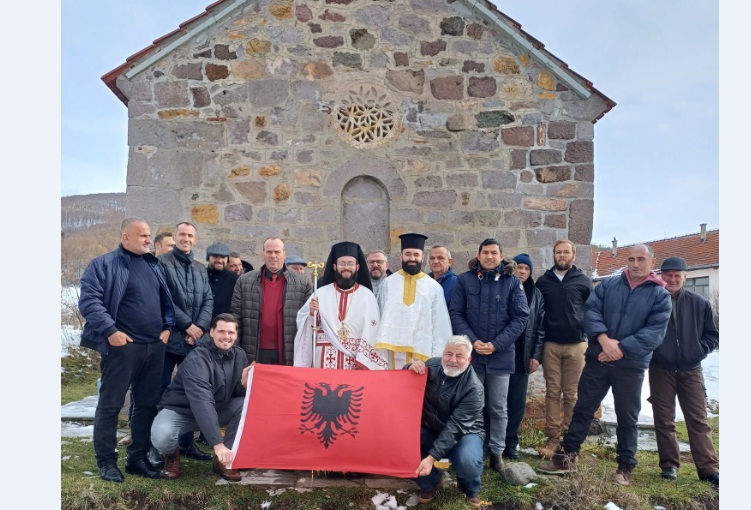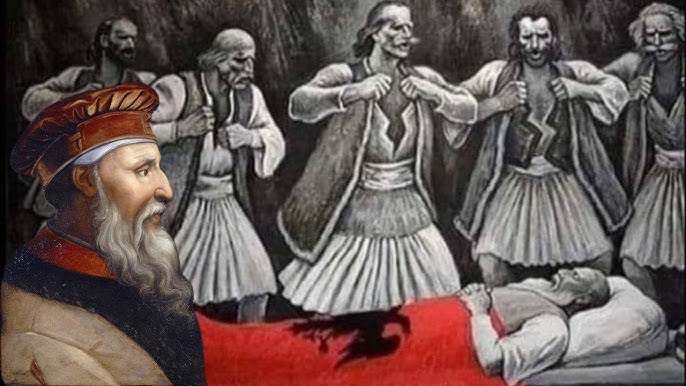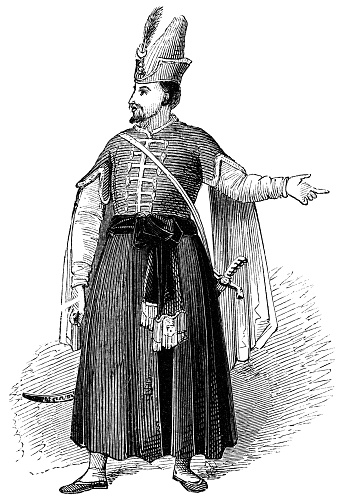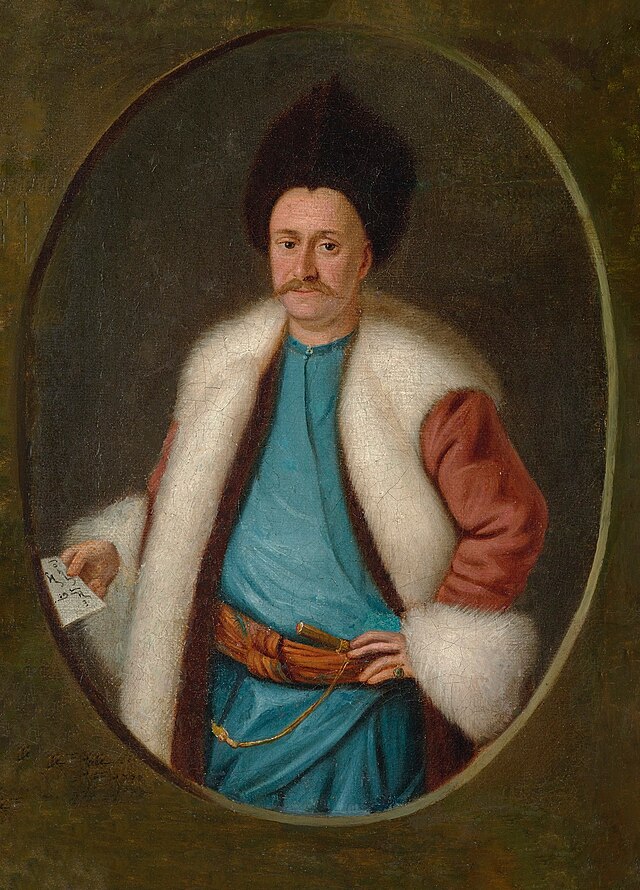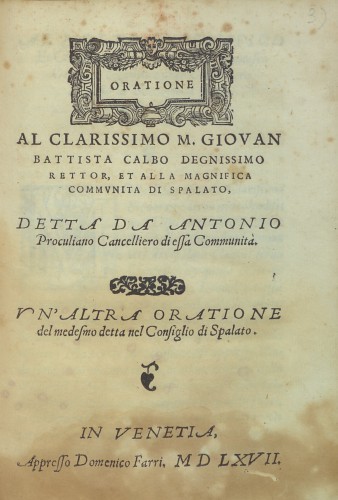Isa Arif Havolli was born in the village of Llapashtica i Eperme, on January 11, 1943, in a poor peasant family, but with a national tradition. Three members of this family were killed during the King’s Yugoslavia by the Serbs who came to this country, namely from the Jeremic family that was settled in Llapashtica.
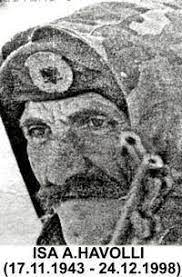
This happened in 1915 when, at that time, the Kingdom of Serbia increased the violence against the Albanian people, especially against this patriotic family in Llapashtica. With great pressure, they force you to sell the land to the settlers and with the little money they leave for the city to arrange the documents to move to Turkey. However, in the place called “Bajrushi Bridge”, the Jeremics, with the help of the Serbian gendarmerie, ambushed them and killed three members of the Havolli family and a guest from Tetova, in which case they robbed them and took their money from the land. Among those killed was Rexhë Havolli, patriot and fighter of the 1912 battles for the liberation of Albanian lands.
Thus, due to disobedience to the King’s gendarmerie, a part of this family moved to Turkey, while the rest remained in Llapashtica, but it was always an eyesore for the occupying power. Even after the Second World War, an unprecedented military-police repression was applied to the Havolli family.
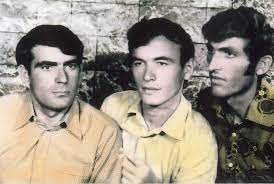
In 1944, the Slavic-Chetnik communist forces, using the most barbaric methods, brutally beat Isa’s father, Arif, who forced him to open the grave himself three times. However, at the last moment before the shooting, a local Serb passes by who, knowing the national attitude of this family, warned the Serb-Chetniks not to shoot Arif, because if Zymer Havolli remains alive, he will take revenge many times on the Serbs here, he said. Thus, Arifi escapes from the shooting, but after a few days, as a result of the torture caused by the Serbs, he dies.
It is worth noting that Isa’s uncle, Ali Havolli, was killed in 1946 in a duel with the Slavic-Chetnik forces in the village of Kështellas (formerly Popovë).
For the history of this family and the life, sufferings, bravery and heroism of Isa, Isa’s cousin, peer and comrade-in-arms, Rasim Havolli, would like to leave a note today. After the death of their father, Isa and his brother Ganiu are left alone, but they start doing different and heavy jobs in the village to live by their own sweat. However, the Sero-Slavic UDB with the help of some Albanian collaborators, recognizing the national tradition of this family, did not leave them alone for a moment.
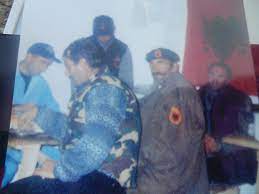
They often took part in informative conversations, beat them, abused them in different ways. Day after day, Isa and his brother Gani were subjected to physical liquidation, but for a moment they did not submit, despite the great torture. The violence perpetrated by the UDB on the Havolli brothers kept increasing day by day, until they were forced to sell their property and risk their lives for a symbolic price. They go to Sarajevo where they start working hard manual labor but honestly make a living.
Love for Kosovo, as Isa often said, did not leave him alone there. “It seemed to me that the sun rose backwards, but life is life and should be lived” said Isa. They work for several years and during this time the brother Ganiu marries a Muslim woman where he creates a family and three children are born to him. Isa does not agree to marry there but wants to live as close as possible to Kosovo and leaves Bosnia and settles in Macedonia.
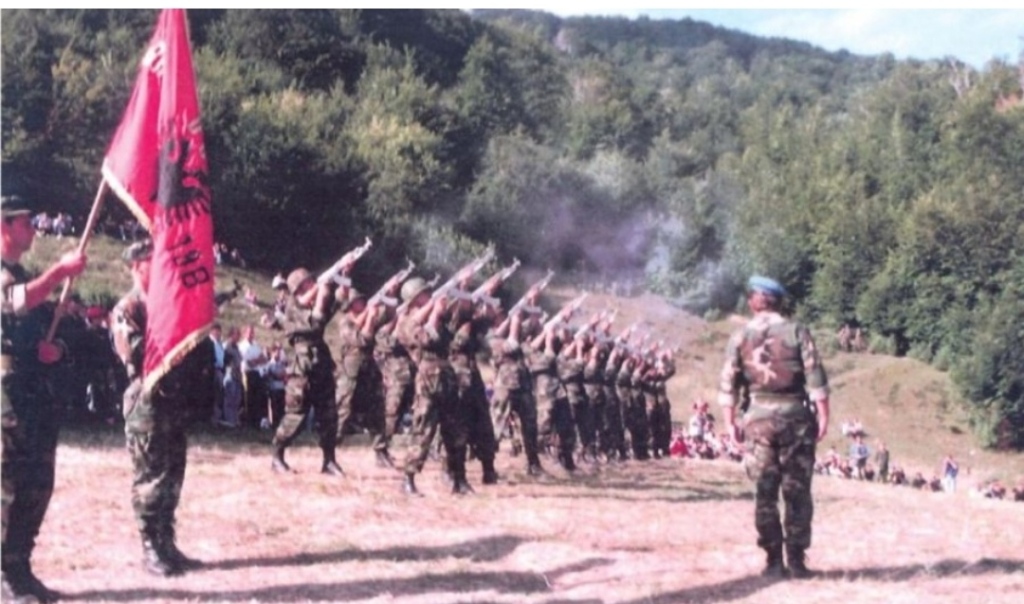
There he began practicing the trade of a mason and as he said, his heart beat more freely here because he had occasions to hear Albanian speaking and hang out with a compatriot and it was closer to Kosovo that he never left his mind. In the meantime, he gets married and has two children.
Although he had started his national activity here, he caught the eye of the Slavic-Macedonian authorities who followed him every step of the way.
In 1981, he deepened his activity even more through his nephew, Abdyl Lahu from Vendenisi, a well-known activist of the national issue. During this time, Isa distributed posters around Skopje that Avdyli prepared for her, in which she wrote about the discrimination of Albanians in Macedonia and in the former Yugoslavia. After some time the state security workers followed him and one day they tracked him down and during the search in his apartment they found the typewriter with which Abdyl Lahu’s posters and some books were prepared.
On this occasion, they arrest Isa, whom they sentence to prison, which he holds in Idrizova prison and in the notorious Goli Otoku prison. After leaving prison, Isa swore that she would never live anywhere else, only in Kosovo. He returns to his hometown in Llapashtica where he starts working in construction and also starts the construction of his house where he does a small part (just a basement that was more like a cave) which he never finished. Then the brother Ganiu returns with his son Ali.
As Syl recounts, in Isa’s bunker cellar, many young people from the village would gather where they would play chess with Isa’s grandmother and talk about various topics, but the topic of the national issue, which Isa always reminded the young people, dominated.
Even here Isa was not left alone by the occupier’s police forces, checking him and mistreating him many times, but he remains invincible. After 1990, the Serbian state service many times took him to the so-called informative talks in which they beat and tortured him severely, but he, as always, did not bow down. Many times they forced him to go to the backyard to look for weapons where they suspected and accused him of building bunkers to hide weapons so that the “terrorists” could be armed later and demanded weapons from him. Isa answered, I don’t have weapons to give, but I will find them to fight against you. They were enraged by this determination of Isa and beat him to death.
In the parties he had with the young people of the village, he openly told them that they should fight against Serbia. This land is ours, and these here are colonial-occupiers. You are young, you don’t know the value of this land, this country. This place is golden, the most beautiful in the world. Even in spite of the repression, never let go of Kosovo, Isa ordered them.
When the first formations of the KLA appeared on the stage, Isa was extremely pleased, and one day he said: “Even in death, I feel sad after I managed to see our army, returning the rifle to you.” But I will also be part of the Kosovo Liberation Army because I have been waiting for the weather this day”.
As soon as the first units arrive from Shala of Bajgore in the village of Llapashtica, Isa immediately reports to the ZOLL Headquarters where he asks to join the ranks of the KLA. In the headquarters, they say that Isa’s brother is a bit old, but he persistently wants to become a soldier of the KLA. This long-standing wish of his is fulfilled by lining up in the ranks of the KLA and is placed at the “Tek Nelakët” point, which was commanded by Bedri Ahmet (martyr of the nation) and deputy Afrim Kadriu, who received him well and appreciated the readiness of yours to join the ranks of the soldiers of freedom.
Both the commander and the deputy commander as well as the other soldiers had a special respect for Baca Isa as they all called him. On this occasion, he swears that Işe Havolli will only move forward and never turn his back. When he put on the KLA uniform, he said, “Guys, I was born for the second time, I have never had greater pleasure in my life.” He walked easily in his military uniform as if he had an arm.
Although advanced in age, Isa faithfully and diligently performed all military duties. By order of the Headquarters of the area, this unit is placed at the point at “Tabet e Llapashtica”. There, Isa swears once more and kisses the ground, where he says that Isa will never let go. His face was smiling, his heart was happy because the positions held by the Serbian army a few days ago were now held by the KLA.
He from the position every time followed the movements of the enemy forces which were moving along the Besian – Prishtina asphalt strip only three to four hundred meters away from the positions of the KLA. He was convinced that the vulture knows only the language of the rifle and not dialogue as some thought. This would free Koosva, Isa said, kissing the rifle in his hand. It inspired enthusiasm, morale and bravery in young soldiers.
Isa was always willing to stand guard in positions even when it was not his turn, he spared the young men. This is what happened on the occasion of November 28, 1998 when a group of musicians went from the city to Llapashtica to entertain the freedom fighters and Isa also stayed there for a while but later he got up and told them to sing and dance as much as you want. he will make a guard in the tabe and don’t worry that he will never step foot here.
One of the glorious battles of the ZOLL KLA was that of Tabe in Llapashtica, in which the whole of Llapi immortalized the glory of Tabe. That well-known place was the nest and fortification of the KLA, where from September 15, 1998 to March 24, 1999, dozens of Serbian offensives, which taught the positions of the KLA, were broken. Everyone feels proud of this battle when considering the ratio of forces and the great difference in weaponry.
The losses of the Serbs in this battle were very large. The echo of that battle, as well as the battles of Prekaz, Llapushnik, Gllogjan and many other battles, were the echo of freedom, the future of our country. In this battle, the conqueror’s spirit was defeated once and for all, the myth that the Serbian army is invincible was extinguished. It was shown that the KLA had become the main factor that would lead to the realization of our centuries-old goals. This victory came with many sacrifices.
In the early morning of December 24, 1998, Serbo-Slavic forces launched a surprise insidious offensive against KLA positions in Llap. But the freedom fighters were in the right place, in positions and nothing could surprise him. Even Isa’s brother was in his position on the tabe. With a large combat arsenal, the occupier’s forces marched towards the positions of the KLA, but encountered strong resistance from the freedom fighters.
Repulsed several times and after a fierce battle that took place that day and after the great reinforcements that came to the enemy forces in terms of equipment and men and after the great losses suffered they again learned the tabe and the first tank that wanted to penetrate the tabe there in the position was Ise Havolli, who with unparalleled bravery jumps on the enemy’s tank and puts the bomb in their tank. The other tank is heading in the direction of Isa, where the “Mic Sokoli of Llapi” falls. There the blood of freedom was shed, there the myth was broken that the army was invincible, there the determination of the sons of freedom was proven.
That day, the resistance of the Albanian soldiers was heroic and caused serious losses to the invading Serbian army, which left several soldiers killed and several war machines destroyed on the battlefield. The presence of Mr. William Voker, then the representative of the OSCE in Kosovo, a day later, whose presence was commented on as an international intervention to reduce tensions between the warring parties. Meanwhile, martyrs Isa Havolli, Ismet Dërguti, Lulëzim Jashari, Skënder e Miftar Zejnullahu, Bajram Murati fell heroically from the ranks of the KLA on the front line.
From the Battle of Tabeve in Llapashtica, the KLA fighters with their heroism spread the significant message throughout the world that they will fight to the last soldier for the freedom of this country. Ise Havolli revived the bravery and endurance of Mic Sokol that day as well. In this battle, songs of bravery and glory were fought, the brave men were sung to the brave Zahir Pajazit, the legend of our days Adem Jashari and other brave men. In this won battle, the military knowledge, sacrifice and heroism of the brave fighters of the KLA came together. who kept the Serbian machinery pinned down for months and created space to reorganize all other areas of the KLA.
The freedom fighters jumped on the tanks of the occupier and did not give up their positions. They proved with their work how to live, fight and how to die for the freedom of the homeland. The battle for Kosovo took place here, for the new Albanian history which was being written in blood. The news spread to the world that in Tabet e Llapashtica scout tanks are stopping with the chests of freedom fighters.
Isa’s blood in Tabete Llapashtica raised his immortality and his friends who fell in this battle.
In the very place where the battle of Tabe Llapashtica took place, there is a memorial, on both sides of which there are pictures of the martyrs of the brigades 151 “Zahir Pajaziti” and 152 “Shaban Shala” of the ZOLL KLA, who fell in these sides not only in this battle. There is also the photo of the nation’s martyr Isa Havolli and other martyrs such as Rushit Selmani, Bajrush Murati, Murat Murati, Raif Haliti, Faton and Avni Selmani, on the other side Skënder and Miftar Zejnullahu, Lulëzim Jashari, Remzi Demolli, Jetullah Kastrati and Driton Azemi, and in the middle the photographs of the two commanders of these two points: Bedri Ahmeti – Bedi and Ismet Dërguti.
The strong resistance in Tabet e Llapashtica brought back the echo of the great Albanian battles such as the Kaçanik Gorge and Carraleva Gorge. The dead body of Isa Havolli was taken by the Serbs and sent to the Hospital of Pristina, which was then taken by his cousin Hasim Havlli, who then, helped by Adem Havlli, brought him to his hometown and on December 27, 1998 he was buried with high military honors.
After the fall of Isa, his grandson Ali, the son of Gani, continued his path. While his brother Ganiu has since been considered missing From this family with a high national tradition in the KLA units were also Rasim (Isa’s age), Skenderi, Hamit, Aliu and Milazim, all from the same family.
Now in Tabe, the memory of the battles fought is kept alive, where thanks to the good organization and military discipline and the good leadership of the war by the superiors of the KLA in these battles, there were no great losses even in people and military equipment. Now the memorial erected in Tabet e Lalpshtica speaks and orders: “Honor the blood of the martyrs, honor the blood shed for Kosovo.” Honor Kosovo, this does not let us die, we hear you, we see you and do you listen to us?”
Ise Havolli is alive in Tabe. Ise Havolli and his friends are in positions in Tabe. They once again order: Protect it, dune, don’t betray Kosovo.
Isa Havolli left behind a son and a daughter who live in Skopje. As a sign of respect for the martyr and the heroism shown in the fight for freedom, many poems have been written for Isa and newspapers and magazines have written as well as sang songs from the Llapian rhapsodes, while afterwards Isa’s family from the SHP of the UÇK was honored with gratitude.
Reference
